I’ve read books in English, French, and Arabic. Both fiction and non-fiction.
Mostly, I’ll post here non-fiction English books. At least, the ones that I can recommend and might be relevant to most of you.
Also, I’ll skip the books that I read but don’t remember much of them. I spent a decade reading without taking notes. Please don’t do like me. It’s such a waste.
This section is only meant to spark your interest in books. So I’ll only write my impressions and three notes from the books. For more details, summaries and reviews, you can find them on Amazon or any other source.
For a faster research, you can click on any tag below to find the books of your interests.
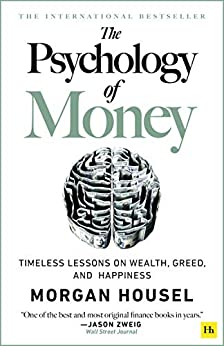
The Psychology of Money
Timeless lessons on wealth, greed, and happiness
Morgan Housel
The way we manage money doesn't depend only on our technical skills, but on our personal history, emotions and behaviors. Learning about these things can give you a better understanding of your behavior with money. And who knows, it might save you from future troubles too. Through simple writing and short stories, Morgan Housel makes sure that every we'll get the lesson.
Three notes from the book:
1- The more extreme the outcome, the less likely you can apply its lessons to your own life.
2- There is no reason to risk what you have and need for what you don't have and don't need.
3- "Enough" is realizing that the opposite—an insatiable appetite for more--will push you to the point of regret.
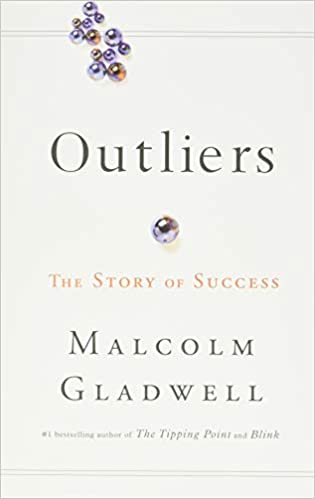
Outliers
The Story of Success
Malcolm Gladwell
I read The Tipping Point after reading Outliers. From a writing perspective, Outliers is far better. It is fluid with a dose of suspense. You don't see from the beginning how the different chapters are connected to the main idea, which keeps you captivated. For the rest, based on the story of many successful people, Gladwell shows what it takes to be successful. Also, you'll understand why some ingredients of success are not replicable.
Three notes from the book:
1- Achievement is talent plus preparation. The problem with this view is that the closer psychologists look at the careers of the gifted, the smaller the role innate talent seems to play and the bigger the role preparation seems to play.
2- Those three things - autonomy, complexity, and a connection between effort and reward - are, most people will agree, the three qualities that work has to have if it is to be satisfying.
3- It is those who are successful, in other words, who are most likely to be given the kinds of special opportunities that lead to further success. It’s the rich who get the biggest tax breaks. It’s the best students who get the best teaching and most attention. And it’s the biggest nine- and ten-year-olds who get the most coaching and practice. Success is the result of what sociologists like to call “accumulative advantage.

The Sickness unto Death
A Christian Psychological Exposition of Edification & Awakening
Soren Kierkegaard
Kierkegaard has his style and sometimes it's hard to understand, especially the first few pages. But if you are brave to carry on reading, you'll be generously rewarded. The book contains a first-class analysis of despair like I've never encountered before. For a taste of it, you can check my article "How Despair Can Help Us Live a Better Life?" in Psychology.
Three notes from the book:
1- The greatest hazard of all, losing one’s self, can occur very quietly in the world, as if it were nothing at all. No other loss can occur so quietly; any other loss - an arm, a leg, five dollars, a wife, etc. - is sure to be noticed.
2- The [unconscious] despairer is in the same situation as the consumptive; he feels best, considers himself to be healthiest, can appear to others to be in the pink of condition, just when the illness is at its most critical.
3- The common view, which assumes that everyone who does not think or feel he is in despair is not or that only he who says he is in despair is, is totally false.

Waking the Tiger
Healing Trauma
Peter A. Levine
The main idea of this book is intriguing. That's what got me to read it. Even if there are practical tips, I don't know if we can use this book to self-manage traumatic experiences. A therapist will still be needed. Anyhow, the book presents an interesting approach to healing trauma that worth knowing.
Three notes from the book:
1- Traumatic symptoms are not caused by the "triggering" event itself. They stem from the frozen residue of energy that has not been resolved and discharged; this residue remains trapped in the nervous system where it can wreak havoc on our bodies and spirits.
2- The idea that memory is not an accurate recording device turns our conventional notions upside down and backward.
3- When animals experience life-threatening events, they quickly move beyond the initial shock reaction and recover.
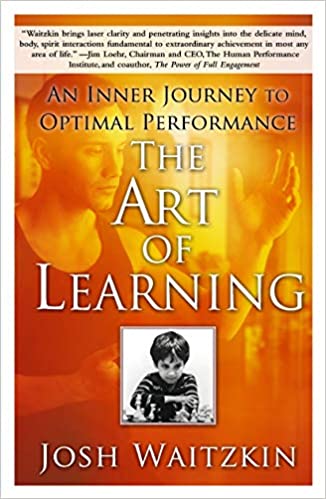
The Art of Learning
An Inner Journey to Optimal Performance
Josh Waitzkin
If you saw the movie 'Searching for Bobby Fischer', you know already who Josh Waitzkin is. What's fascinating about him is his performance not only in chess but also in martial arts. This book exposes his methods for reaching high levels of achievement in unrelated fields.
Three notes from the book:
1- If your goal is to be mediocre, then you have a considerable margin for error.
2- A child with a learning theory of intelligence tends to sense that with hard work, difficult material can be grasped--step by step, incrementally, the novice can become the master.
3- I believe an appreciation for simplicity, the everyday--the ability to dive deeply into the banal and discover life's hidden richness--is where success, let alone happiness, emerges.
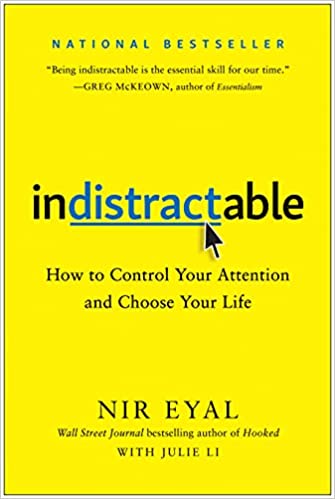
Indistractable
How to Control Your Attention and Choose Your Life
Nir Eyal
This book goes into the psychology of distractions and gives practical solutions to overcome them. Nowadays, being indistractable is a superpower. If you want to achieve your goals and get the most out of your time, this book can help have back your focus.
Three notes from the book:
1- Being indistractable means striving to do what you say you will do.
2- All motivation is a desire to escape discomfort. If a behavior was previously effective at providing relief, we're likely to continue using it as a tool to escape discomfort.
3- You can't call something a distraction unless you know what it's distracting you from.
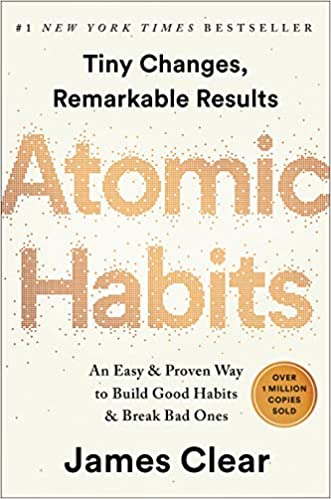
Atomic Habits
An Easy & Proven Way to Build Good Habits & Break Bad Ones
James Clear
Learning about habits improved my life dramatically. Once you understand how habits work, you can break down any long-term goal into tiny daily habits. Whatever you want to achieve, it becomes easier by understanding the psychology behind habits.
Three notes from the book:
1- Habits are the compound interest of self-improvement. The same way that money multiplies through compound interest, the effects of your habits multiply as you repeat them.
2- The purpose of setting goals is to win the game. The purpose of building systems is to continue playing the game.
3- The most practical way to change who you are is to change what you do.
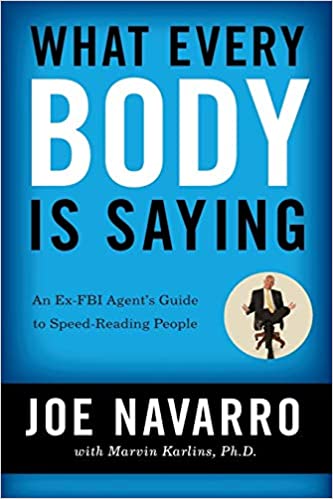
What Every Body Is Saying
An Ex-FBI Agent's Guide to Speed-Reading People
Joe Navarro
As my wife was pointing at some of my body languages, I decided to learn more about it. From head to toes, the author helps us understand our nonverbal communication. And the first thing you'll learn is that the face is the least reliable source for body language cues.
Three notes from the book:
1- Blocking behaviors may manifest in the form of closing the eyes, rubbing the eyes, or placing the hands in front of the face, The person may also distance herself from someone by leaning away, placing objects (a purse) on her lap, or turning her feet toward the nearest exit.
2- When stressed, we might soothe our necks with a gentle massage, stroke our faces, or play with our hair. This is done automatically. Our brains send out the message, "Please pacify me now", and our hands respond immediately, providing an action that will help make us comfortable again.
3- When reading body language, most individuals start their observation at the top of a person (the face) and work their way down, despite the fact that the face is the one part of the body that most often is used to bluff and conceal true sentiments.

Mindset
The New Psychology of Success
Carol S. Dweck
You've probably already heard about the two mindsets: the fixed and the growth mindsets. The strength of this book lies in showing how these two mindsets affect every aspect of our life, from our perceptions to our accomplishments, passing by our relationships, and much more.
Three notes from the book:
1- Failure has been transformed from an action (I failed) to an identity (I'm a failure). This is especially true in the fixed mindset.
2- This growth mindset is based on the belief that your basic qualities are things you can cultivate through efforts, your strategies, and help from others.
3- ...many managers don't believe in personal change. These fixed-mindset managers simply look for the existing talent--they judge employees as competent or incompetent at the start and that's that.
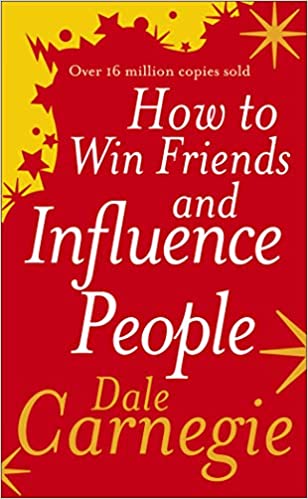
How to Win Friends and Influence People
The Only Book You Need to Lead You to Success
Dale Carnegie
The title can be misleading. It sounds manipulative. The book is more about being a better communicator. I did enjoy it especially that it’s packed with great stories. It makes it easy to read and easy to remember its principles.
Three notes from the book:
1- Criticism is futile because it puts a person on the defensive and usually makes him strive to justify himself. Criticism is dangerous, because it wounds a person’s precious pride, hurts his sense of importance and arouses resentment.
2- Remember: ‘First, arouse in the person an eager want. He who can do this has the whole world with him. He who cannot walks a lonely way.’
3- One of the important rules of human relations: Always make the other person happy about doing the thing you suggest.










